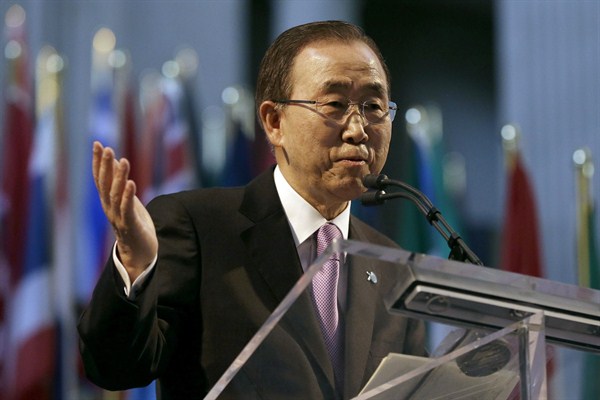In the first half of August this year, something snapped inside Ban Ki-moon. The secretary-general of the United Nations demanded that the leader of the U.N. operation in the Central African Republic (CAR), Senegalese Gen. Babacar Gaye, should resign.
The mission, known by its French acronym MINUSCA, was buckling under the weight of stories about sexual abuse by U.N. troops. “Enough is enough,” Ban told the press. Gaye did not go quietly. He had, he pointed out in his resignation letter, insisted on a “zero tolerance” policy toward the abuse. He previously served the U.N. in the Democratic Republic of Congo and the Middle East, making it all the more regrettable that his “long and faithful service” should come to an “abrupt and inglorious end.” But the secretary-general had asked him to go, and he would do so.
Ban’s decision to force Gaye out was still something of a landmark. Tales of sexual abuse and corruption have dogged U.N. peace operations since long before Ban took up his post in 2007. He had campaigned on a promise to crack down on such acts, restoring a sense of peacekeeping’s humanitarian purpose. “The moral authority of the United Nations depends on its ability to help people most in need,” Ban told the Council on Foreign Relations in 2006, “and it must do so with the highest ethical standards and professionalism.”

